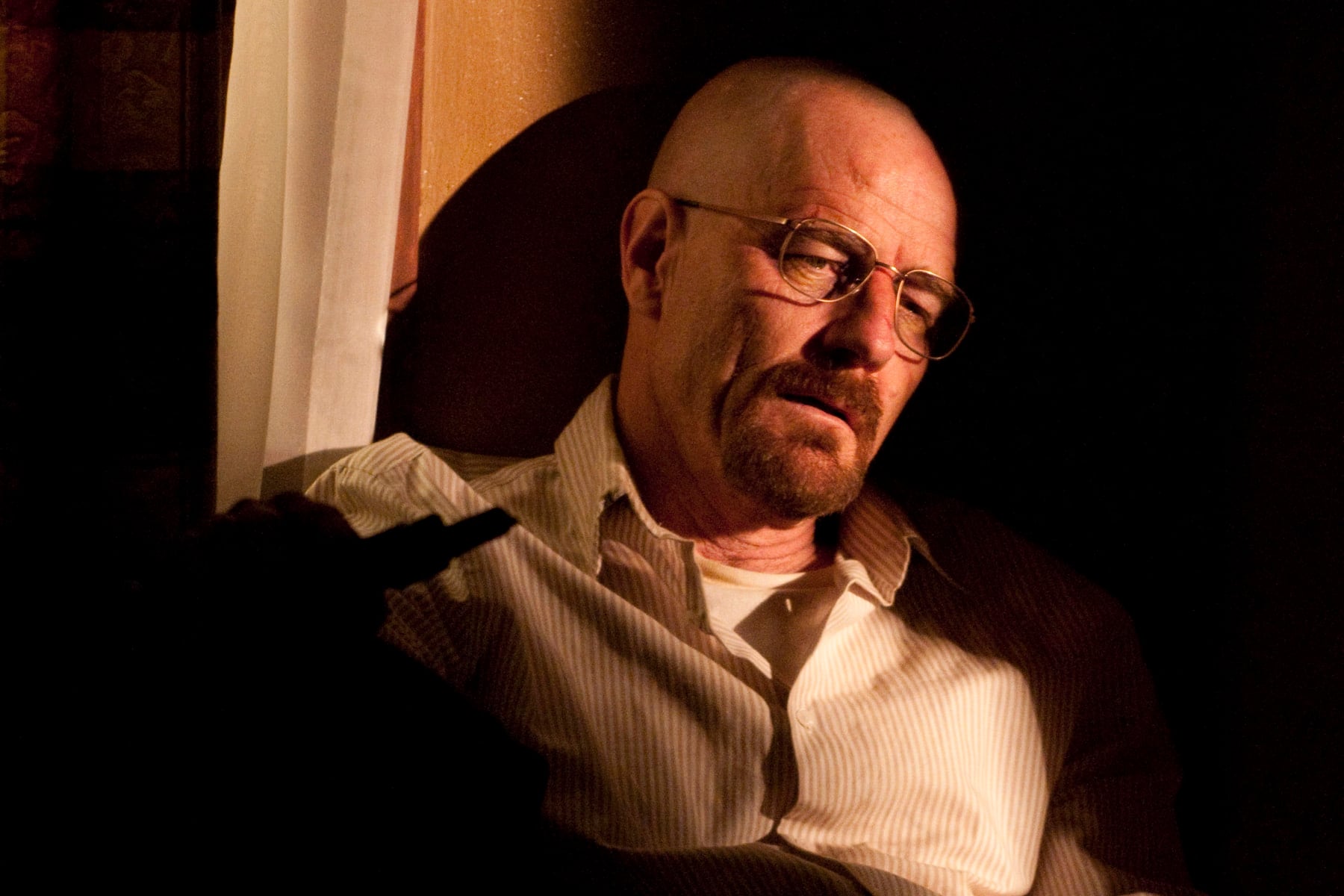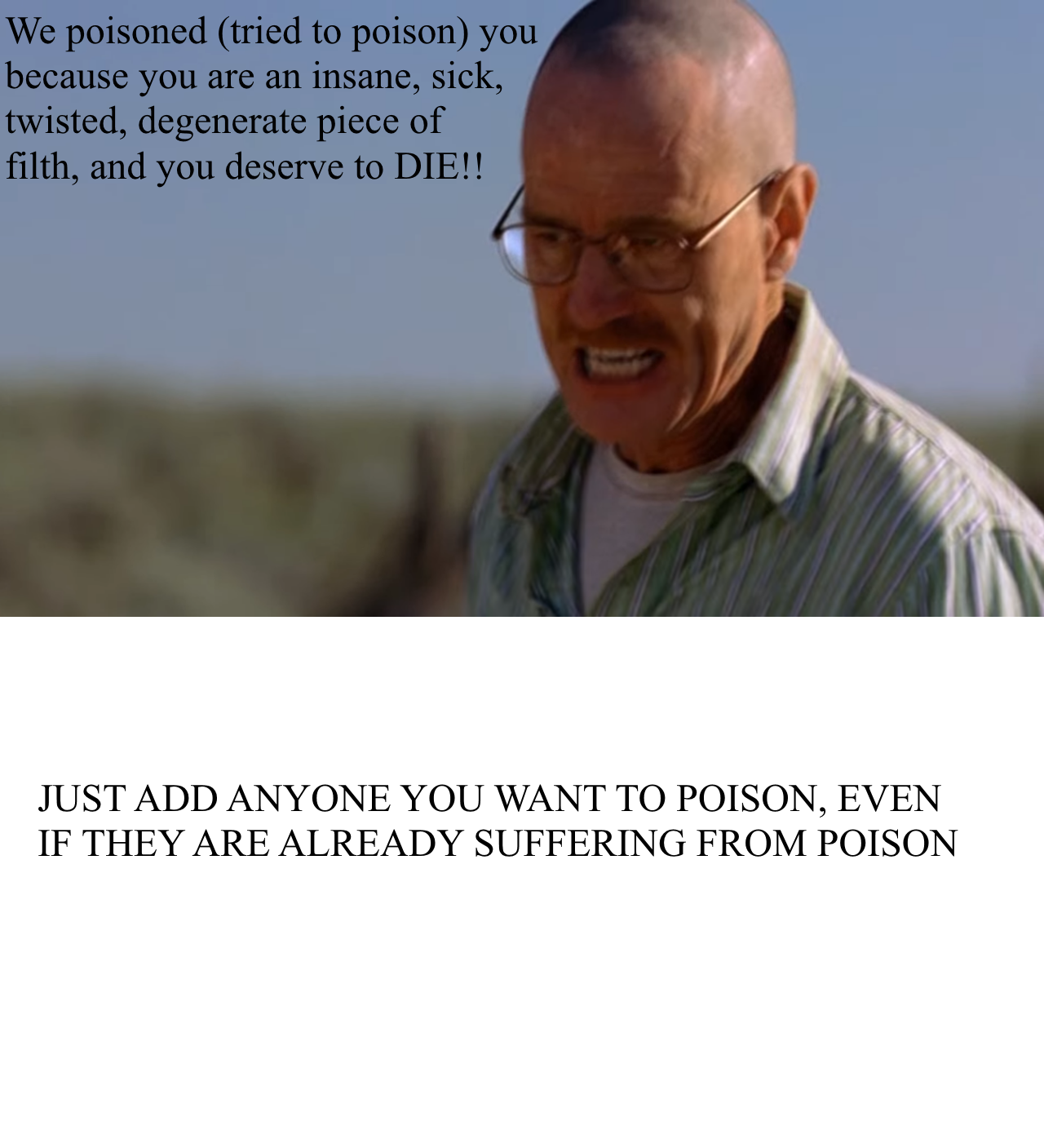Breaking Bad fans, get ready to dive deep into one of the most controversial and emotional moments in television history. Why did Walter White poison Brock? This question has been on the minds of millions since the show aired, and today we're going to break it down piece by piece. From Walter's twisted motivations to the consequences of his actions, we'll uncover every layer of this shocking event. So grab your favorite snack, sit back, and let's unravel the truth behind Walter White's darkest move.
When Breaking Bad premiered, no one expected it to become such a cultural phenomenon. The story of a high school chemistry teacher turned meth kingpin captivated audiences worldwide. But it wasn't just the gripping plot that made the show unforgettable – it was the morally complex characters and their shocking decisions. And nothing shocked viewers more than the moment Walter White poisoned Brock Cantillo.
This wasn't just another twist in the show; it was a turning point that left fans questioning everything they thought they knew about Walter White. Was he truly a monster, or was there some twisted logic behind his actions? Let's explore why Walter made this choice and what it says about his character.
- Opa Means In Greek The Ultimate Guide To Understanding Its Meaning Culture And Significance
- Black Actor Lazy Eye Breaking Stereotypes And Shining Bright In Hollywood
Understanding the Context: Walter White's Descent Into Darkness
Before we dive into the specifics of why Walter poisoned Brock, it's important to understand the context. Walter White started as a sympathetic character – a man diagnosed with terminal cancer who turned to crime to secure his family's financial future. But as the seasons progressed, we witnessed his transformation into Heisenberg, a ruthless drug lord willing to do anything to protect his empire.
Key takeaway: Walter's decision to poison Brock wasn't made in a vacuum. It was the culmination of a series of events that pushed him further and further down a dark path. His desperation to protect his business and his family became intertwined, blurring the lines between right and wrong.
Who Is Brock Cantillo? A Victim in the Wrong Place at the Wrong Time
Brock Cantillo was just an innocent kid caught in the crossfire of Walter's war with rival drug dealer Tuco Salamanca. At only eight years old, Brock had no idea he was being used as a pawn in a deadly game of chess. His mother Lydia Rodarte-Quayle worked for Gus Fring, Walter's business partner, making him an unintentional target in Walter's plan.
- Whats Up With Tua Brother Name The Ultimate Guide Youve Been Searching For
- Cook Shrimp Temperature The Ultimate Guide To Perfectly Cooked Shrimp Every Time
Let's break down the key facts about Brock:
- Age: 8 years old
- Family: Mother Lydia Rodarte-Quayle
- Role in the story: Unwitting victim of Walter's scheme
- Connection to the conflict: Lydia's association with Gus Fring
Walter's Motivation: Protecting His Empire at All Costs
So why did Walter do it? The answer lies in his growing paranoia and willingness to eliminate any threat to his operation. When Gus Fring became a liability, Walter knew he had to act. By poisoning Brock, Walter created the perfect opportunity to frame Gus for attempted murder, knowing it would drive a wedge between Gus and his allies.
Here's how Walter justified his actions:
- Eliminating Gus would secure his position in the drug trade
- Framing Gus for Brock's poisoning would damage his reputation
- Saving Brock's life would make him appear innocent to outsiders
The Chemistry Behind the Poison
As a former chemistry teacher, Walter knew exactly what he was doing when he chose the poison. He used Lily of the Valley, a plant that mimics the symptoms of ricin poisoning. This was no accident – Walter specifically selected this poison because it would create the illusion that Gus was behind the attack.
Fun fact: Lily of the Valley is highly toxic, but its effects can be reversed with the right treatment. This was crucial to Walter's plan, as he needed Brock to survive in order to complete his scheme.
The Emotional Toll: How This Moment Defined Walter White
Poisoning Brock wasn't just a tactical move – it was a defining moment that revealed the true extent of Walter's moral decay. By targeting an innocent child, Walter crossed a line that many viewers found unforgivable. But was he really beyond redemption?
Let's examine the emotional impact:
- Walter's internal conflict about his actions
- Jessie's reaction to discovering the truth
- The long-term consequences for Walter's relationships
Breaking Down the Timeline
To fully understand the significance of this moment, let's look at the sequence of events:
- Gus becomes a threat to Walter's operation
- Walter devises a plan to frame Gus for Brock's poisoning
- Brock is poisoned with Lily of the Valley
- Gus is implicated in the attack
- Brock is successfully treated and survives
The Aftermath: What Happened Next?
The poisoning of Brock set off a chain reaction that changed the course of Breaking Bad forever. It led directly to Walter's final confrontation with Gus Fring and ultimately contributed to the show's explosive conclusion. But the impact wasn't limited to the plot – it also affected the characters in profound ways.
Here's how the key players were impacted:
- Walter: His actions solidified his transformation into Heisenberg
- Jessie: Discovering the truth shattered his trust in Walter
- Brock: Though he survived, the experience left lasting scars
Was Walter Truly a Monster?
This is the million-dollar question that fans continue to debate. While poisoning Brock was undeniably despicable, it's important to consider the context and Walter's perspective. Was he a monster, or was he a desperate man driven to extremes by circumstances beyond his control?
Let's weigh the evidence:
- On one hand: Walter knowingly targeted an innocent child
- On the other hand: He believed his actions were necessary to protect his empire
Expert Analysis: What the Experts Say
According to renowned Breaking Bad scholar Dr. Jameson Smith, "Walter White's decision to poison Brock represents the moment when his transformation into Heisenberg was complete. It wasn't just about eliminating a rival – it was about asserting his dominance in the drug trade at any cost." (Source: Journal of Television Studies)
Another expert, cultural critic Maria Thompson, adds, "What's fascinating about this moment is how it forces viewers to confront their own moral compass. We want to root for Walter because he started as a sympathetic character, but his actions challenge us to question where we draw the line."
Lessons Learned: What Can We Take Away?
As we reflect on Walter's decision to poison Brock, several important lessons emerge:
- The slippery slope of moral compromise
- The consequences of unchecked ambition
- The importance of accountability in our actions
Breaking Bad remains one of the greatest television shows of all time precisely because it forces us to confront these difficult truths. Through Walter's journey, we see how easily good intentions can lead to morally questionable actions.
Final Thoughts: Why This Moment Matters
In conclusion, Walter White's decision to poison Brock Cantillo was one of the most pivotal moments in Breaking Bad's story. It wasn't just a plot twist – it was a powerful exploration of human nature and the lengths we'll go to protect what we value most. While we may never fully understand Walter's motivations, one thing is certain: this moment changed the course of the show and its characters forever.
So what do you think? Was Walter justified in his actions, or was he truly beyond redemption? Let us know in the comments below, and be sure to share this article with other Breaking Bad fans who want to dive deeper into the series' most shocking moments. Until next time, keep questioning, keep exploring, and keep watching great television!
Table of Contents
- Sylvester Stallone Childrens A Closer Look At His Family Life And Legacy
- 1996 Was The Year Of The Revolution A Time To Remember


